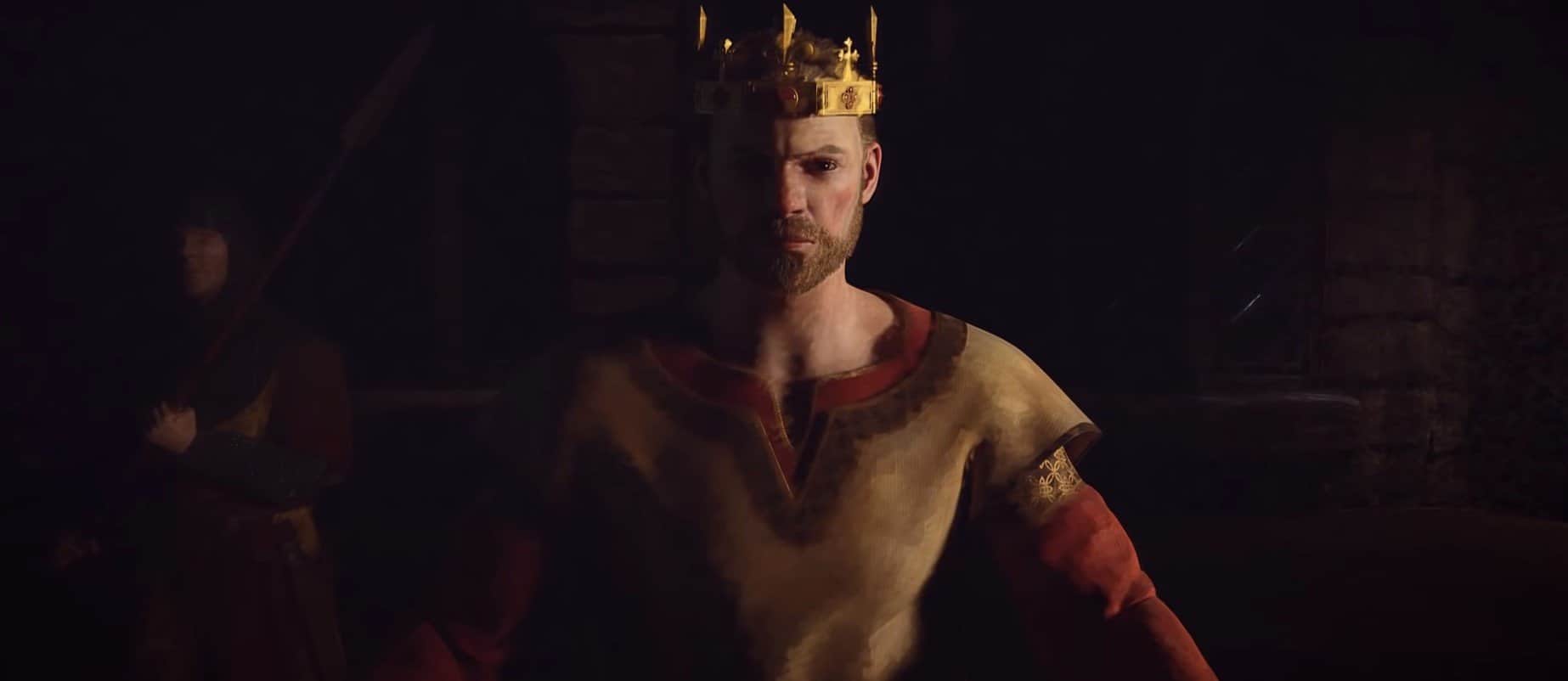
Image via Paradox Interactive.
I’m no stranger to grand strategy games. I’ve clocked my fair share of hours in Crusader Kings 2. I’ve had playthroughs where I warred with bloodthirsty uncles and brothers. I’ve played as rulers who had multiple lovers and were eventually forced to deal with the consequences of having so many bastard children. I’ve even had to justify my throne as a new heir after my original ruler died from falling off a horse a year into my campaign.
All of this is to say that I felt like I had a good idea of what to expect from Crusader Kings 3. Much of it does feel the same, where you have opportunities to betray your brother to obtain their land, or for you to lure an ally to your side only to use them in an upcoming war you had no hopes of winning. But there’s a lot more under the surface. Even 40 hours into a game, I could still be shocked by my spymaster betraying me because I hadn’t helped them marry someone fast enough.
Many may argue Crusader Kings 3 feels too like its sire, but there are enough differences and refined mechanics to justify a sequel. And for players who are new to the series, you’re in for the best Crusader Kings experience yet.
Generation to generation
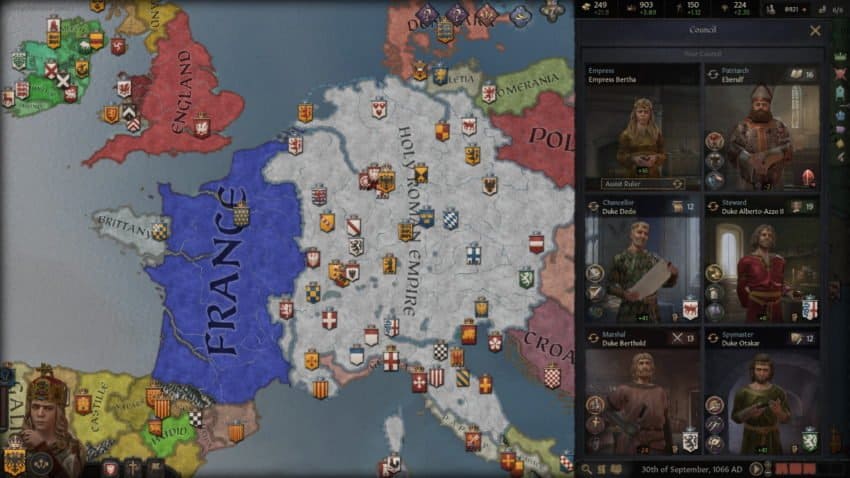
Crusader Kings is about playing as a historic ruler. You can play as Iver the Boneless, who invaded England in 867, or as King Malcolm of Scotland, who in 1066 battled English attackers from the south and Gaelic raiders to the north and west. The game places you in the middle of history but gives you the opportunity to shape what happens, supplying your own unique twists on who rules after you and who is remembered.
Crusader Kings 2 released in early 2012. Developer Paradox, as it’s known to do, kept it going by releasing 15 DLC expansions that added new mechanics, landmasses, religions, and rulers to play. Plenty of those new systems and mechanics came over with Crusader Kings 3, and it’s presented in a cleaner, more pristine package.
Everything is wonderfully rendered. There are new 3D character models who show scars from battle or are missing a limb from a war they barely walked away from. The character animations are gorgeous to watch as they pop up during key moments, and many of these events are unplanned and come with a difficult choice.
There are many returning and new mechanics in the game. You approach situations piece by piece, effectively putting out one fire before a new one flames up, from being diplomatic with neighboring rulers and keeping vassals in check to managing resources to fighting in wars. Each aspect is critical to understand, but how you approach them is up to you and the character you’re playing.
Strategy becomes personality
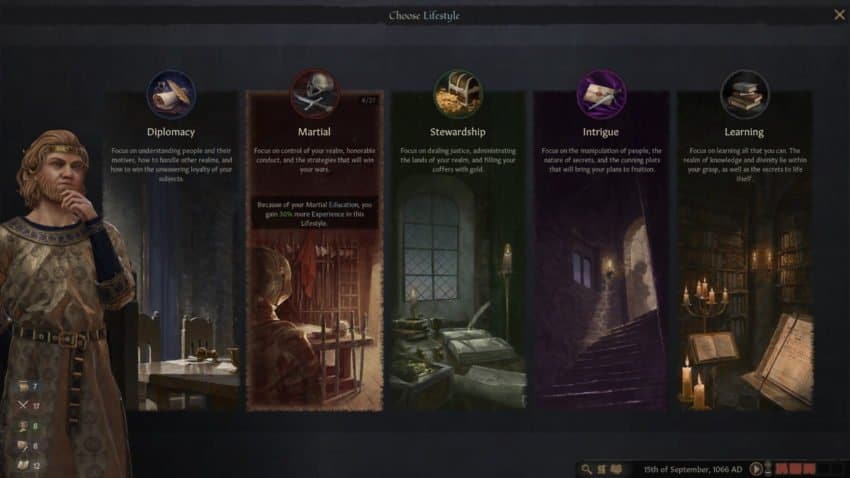
There’s no clear way to win in Crusader Kings 3, no score to reach for beating other players. When your first character dies, you become their heir and pick up your campaign as them. If you don’t have an heir when you pass away, it’s game over.
Playing as a new character can feel like a fresh start in the middle of an epic campaign. They have unique personality quirks that you have to deal with that usually makes them different from their parent. This mechanic gives you different ways to approach the game. Your character’s parent might have been better at conquering a country through brute force, but your new character might be more suited to approach it diplomatically. There’s no wrong answer to how you play the game, and it’s liberating.
The freedom might feel like too much, though. With no clear victory condition, it’s a bit complicated and hard to grasp at times. Your primary concern is having an heir and continuing to play the game through another lifetime. It pushes for players to create their own goals, such as becoming the king of Ireland or conquering a neighbor for their children to inherit after they’re gone. It makes it more of a roleplaying game than a traditional grand strategy.
With how daunting the overall game is, the smaller mechanics can be hard to follow. Yet, Paradox has created a more accessible experience, making it easier for new players.
An open court
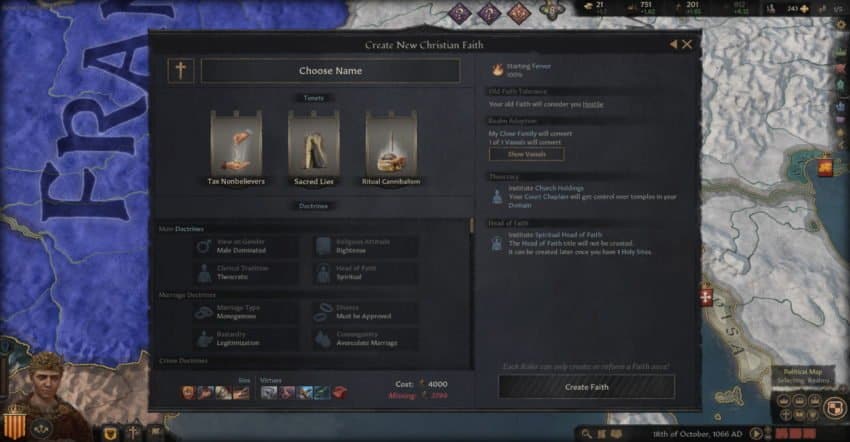
You need to have a level of accessibility built in for any grand strategy game to work. The easier it is for players to play it, the more willing they are to stick around to learn complicated mechanics. Paradox condenses Crusader Kings 3’s tutorial system down to nearly 20 minutes and gives players the reigns almost immediately.
A good chunk of the starting mechanics are shown, and players have the freedom to jump into the deep end. Still, Paradox gives you the wheel but never leaves you alone in the car, instead chiming in with helpful hints when it sees you could further benefit from a situation. When something happens, Paradox is there to explain it with a new tooltip system.
For example, my character was about to run into an issue where they wouldn’t be able to effectively collect taxes from their provinces. They had to do a specific command or risk having an adverse effect. A tooltip notification popped up, explaining everything about what was going on, what I had to do to return to normal, and what adverse effects I was avoiding by going down this path. I could choose how everything happens, but Paradox had handed me the tools to efficiently handle the matter how I saw fit based on my campaign.
The verdict
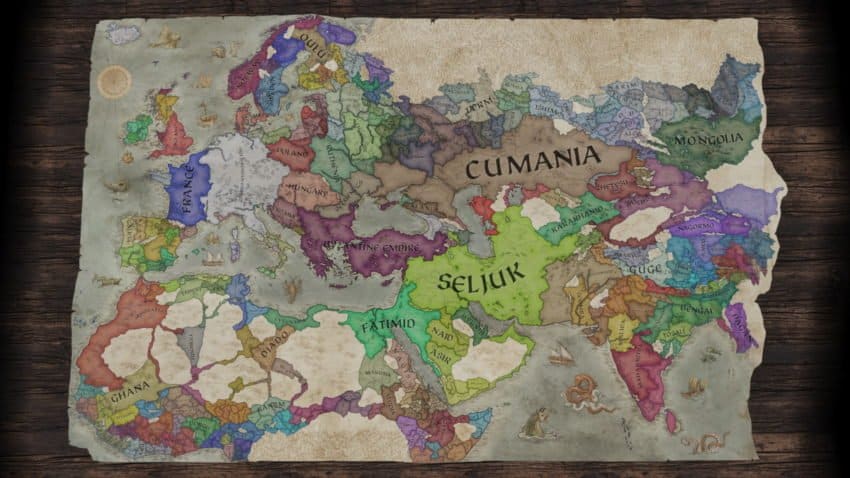
Crusader Kings 3 is enormous. A single playthrough can last dozens of hours, depending on how fast you play the game. There’s a lot to digest, but Paradox has honed its grand strategy skills.
The transition from Crusader Kings 2 to 3 feels justified, and Paradox has mastered how to explain these mechanics to players both before and during their campaign. There’s never so much that you feel too lost, and if you do get confused, Paradox has just enough there to steer you back on track. Crusader Kings 3 is perfect for new and returning players alike.
Final score:
9 / 10
| + | Animations and visuals are gorgeous |
| + | The compact tutorial makes it accessible for new players. |
| + | Welcomes multiple playstyles and strategies |
| + | Provides players with guided wanderlust |
| – | A free-falling sensation from the game’s overall freedom can feel overwhelming. |





More Stories
Firefighting Simulator – The Squad review — Through the fire and the shame
Maid of Sker review — Death in the slow lane
PHOGS! review – It’s a dog-help-dog world out there